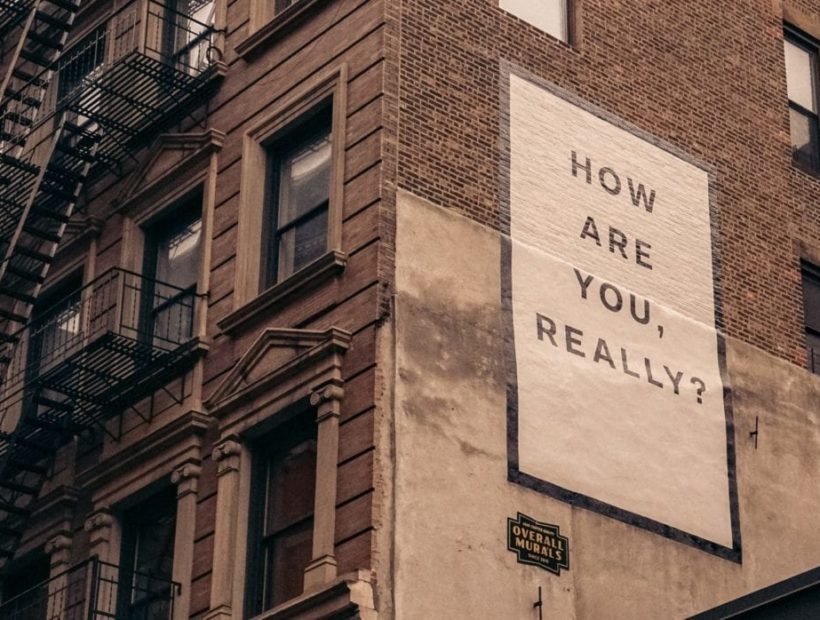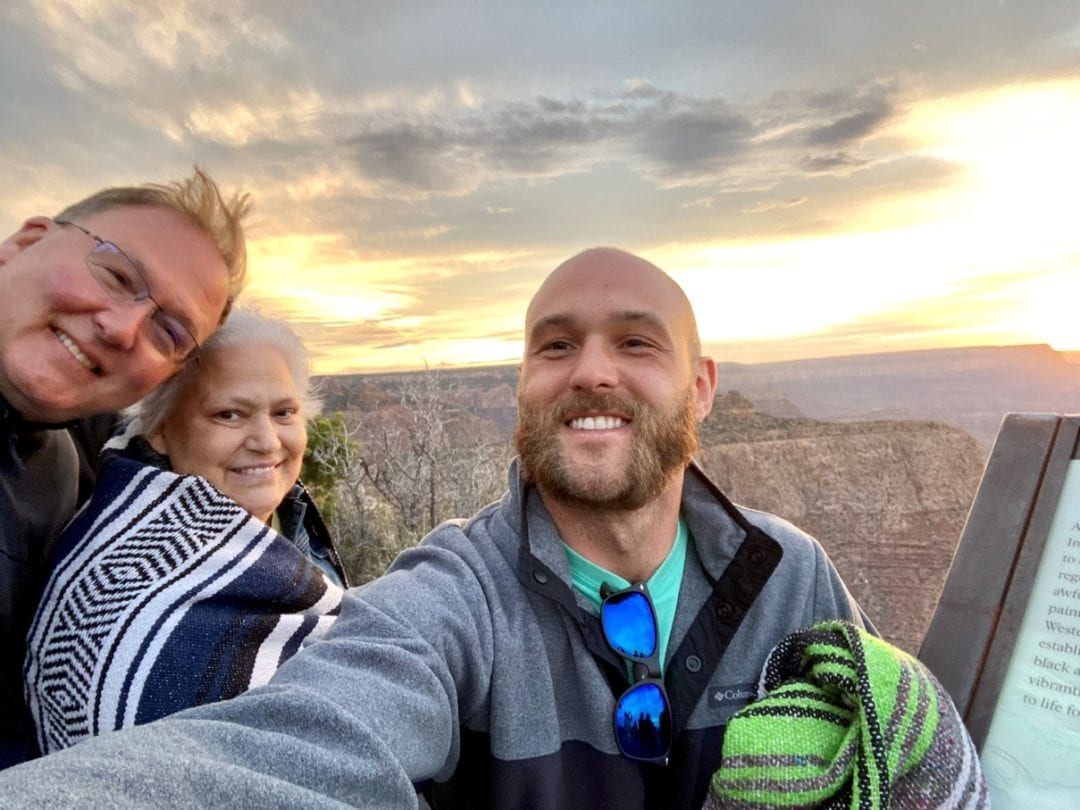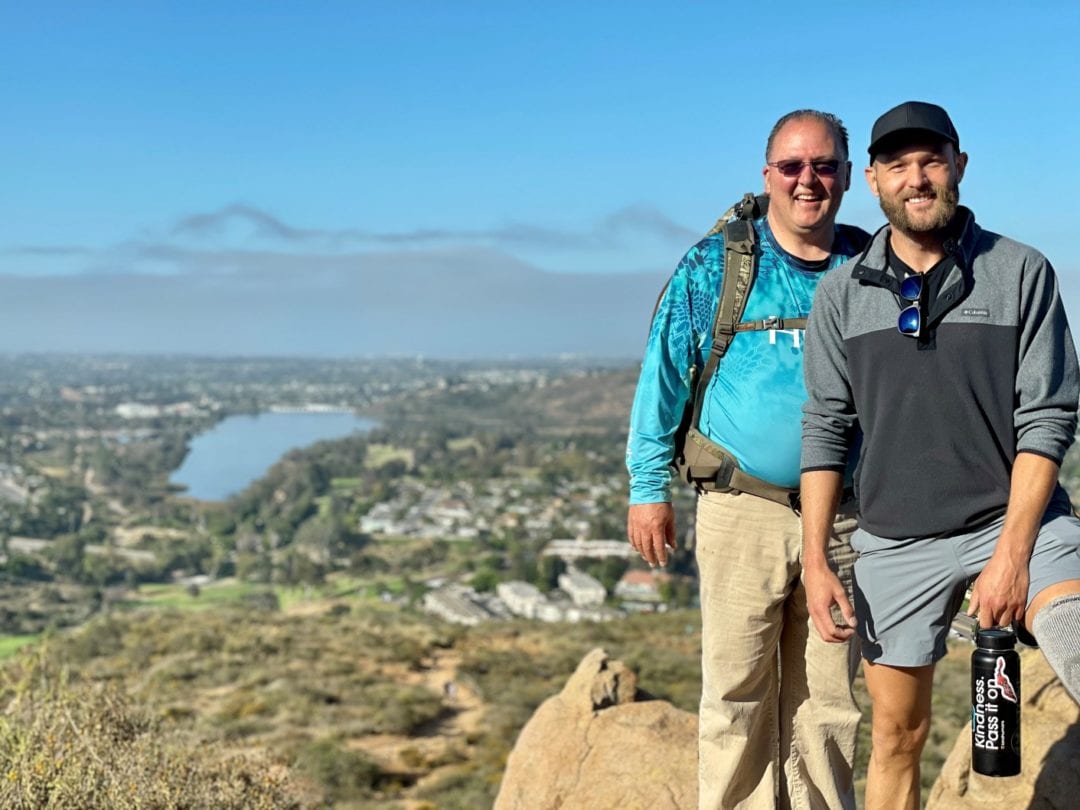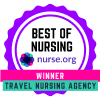It's Okay to Not Be Okay

A husband and wife lay side-by-side in hospital beds. Holding hands, they are simultaneously taken off ventilators and let go of life after battling COVID-19. Their nurses hold up a phone for family members to be present on FaceTime — the only way loved ones could say goodbye.
These are the memories Stanton Hinson, a TNAA ambassador and ICU travel nurse, has of the COVID-19 pandemic.
“The family decided to let them both go without even being able to see them,” he recalled. “It is not what we wanted, but it was the best we could do to help the situation.”
As hopeless as Stanton felt in those months of the pandemic, he was not alone. Healthcare workers across the country share similar heartwrenching experiences. Throughout the pandemic, they have been the caretakers, the human connection, the family who couldn’t be there in the last moments.
“In normal times as ICU nurses, we are able to help a lot of people and save them from death,” Stanton explained. “Reacting quickly and knowing what to do are paramount as an ICU nurse. This was a situation where we felt like we couldn’t help anyone no matter what we did. We basically just had to watch our patients die a slow death, and there was nothing we could do.”
Dealing with the Stress
At first, Stanton took the stress day by day. However, it’s one thing to push through a hard week. This stress enveloped him for 1.5 years.
“At the very beginning, when it was apparent this was going to be a thing, I remember telling myself, ‘Stanton, put your head down and just get through it. Worry about everything else and try to deal with it later. Right now, you have a job to do whether you like it or not,’” he recalled. “Trying every single day to push all of this out of your psyche and out of your range of emotion — it is super difficult.”
The stress of COVID-19 wasn’t something Stanton could leave at work. He was on assignment in his home state of Indiana, only two hours away from his family, but he couldn’t visit. He couldn’t be close to his mother, who has battled breast cancer for eight years, without risking bringing the virus to her.
“You think, ‘I hope this ends so I can actually see and touch my mom again before she dies,’” Stanton said. During those months, the closest he could get to his mother was a phone call through a car window.
“One day, my mom had to come out to Indianapolis to get chemo,” he remembered. “I wasn’t able to actually touch her or anything. But, I remember she drove up, and we just got to see each other through the window. We didn’t even get to hug or anything like that. She just stayed in the car with the windows up, and we talked on the phone. That was a really hard moment.”
Reuniting with Family
Eventually, Stanton was able to reunite with his family. When the vaccines were distributed to healthcare workers, he signed up to get his shot as soon as possible. Thankfully, he received his first dose before going home for Christmas.
Since then, he’s helped his parents get vaccinated and even surprised his mother with a trip to check off a bucket list item — to see the Grand Canyon.

“It was a feat to get her to the edge of the Grand Canyon, but travel nursing is what allowed me to do this for her,” he said. “And for her to have that experience… I know that if we had waited any longer, she wouldn’t have been able to, so we wanted to make it happen when we could.”
These are memories he is thankful to share with her as they spend time together again.
Focusing on Self-Care
Today, Stanton is on assignment in San Diego, California. As the COVID-19 case count drops, he feels much more hopeful and is tackling lingering anxiety through therapy.
“I realized toward the end of this that it was affecting me way more than I thought,” he explained, recalling the emotional load of the pandemic. “I never understood what PTSD was or what it would feel like, but now I do. I started going back to therapy because I knew I needed to deal with it.”
As the weeks go on, he focuses on what he needs for his mental well-being: connection with his loved ones, time for self-care, exercise, and nature. Living in San Diego, he has plenty of activities nearby that bring him joy.

“I can wake up early in the morning, go hike Cowles Mountain, come home to eat breakfast, go ride my bike at Lake Murray, come home to take a nap, and then go to the beach,” he said. “I can do all of those things in one day. That’s a really fantastic thing to be able to do.”
Now, Stanton is here to tell his fellow healthcare workers it is okay not to be okay. Healthcare workers are used to putting their feelings aside for their jobs, but there will be times they need help, too.
“This is not anything that we signed up for, anything we learned about or knew what to do, and it is okay to not feel well about it,” Stanton said. “We had to do a lot of things; we saw a lot of things; we went through a lot of bad experiences with our patients and with our coworkers. This was a traumatic experience, and that requires some delving into. We don’t have to always be strong and stoic.”
TNAA’s Mental Wellness Resources
At TNAA, we know you’ve had to withstand the weight of the pandemic for so long, and we don’t want you to feel alone on your journey. If you are struggling, TNAA has resources, including an Employee Assistance Program, Clinical Support, and a Chaplain Program. Click here to read about our mental well-being resources and find the right line of support for you.







